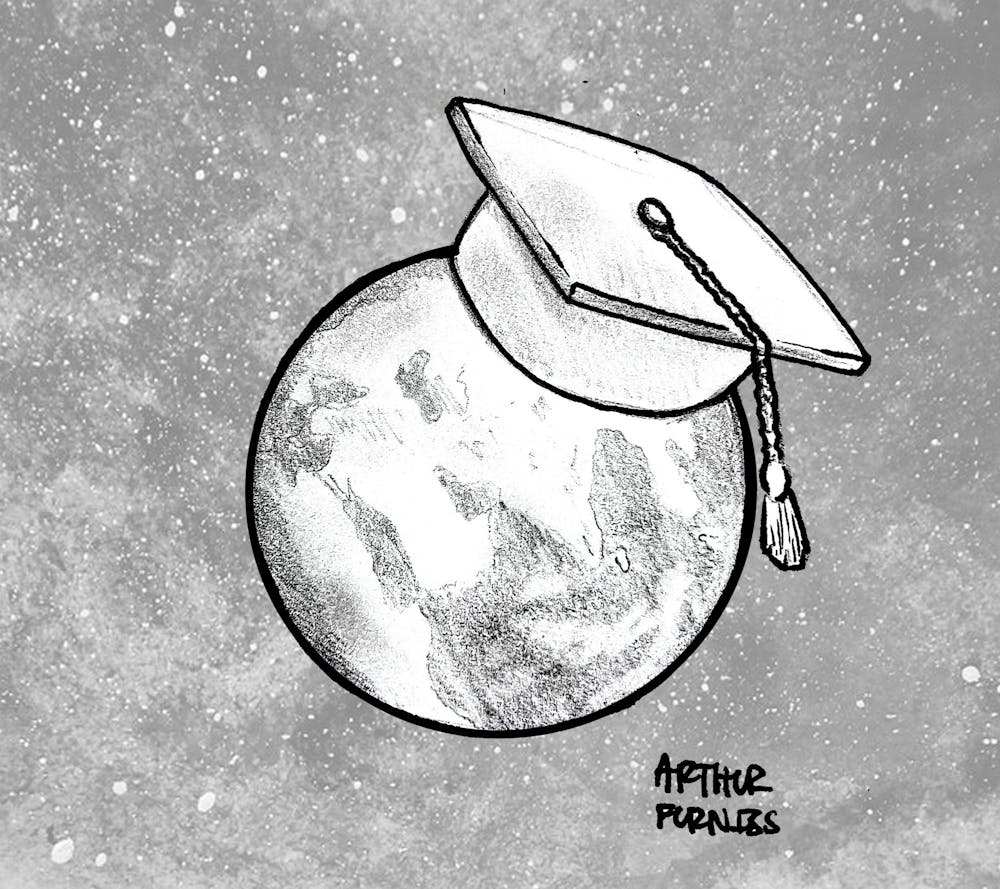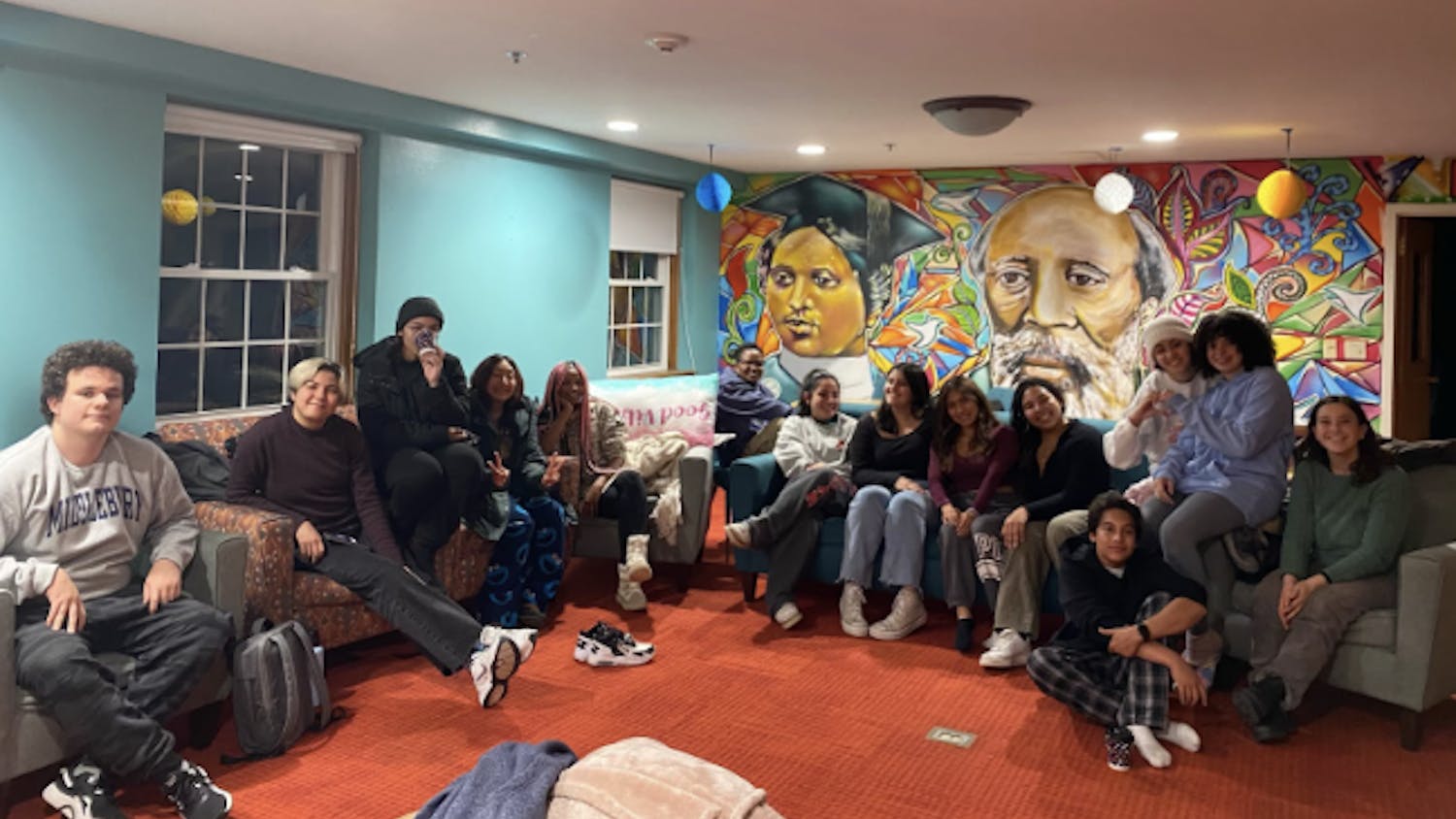In February 2022, my graduating class moved our cap tassels to the left — signaling the end of our undergraduate study. Commencement signifies the beginning of life as an adult, citizen and young professional. For this reason, we are often asked if school adequately prepares students for the real world. But as a young person, I have a more pressing question: Is the real world prepared to work with us and the realities we learned about in school?
Educators, classrooms and curricula are adapting in response to our global moment, considering topics like climate change, institutional racism, colonialism and unfettered capitalism. Yet the professional pressures and opportunities that greet college graduates have adapted very little. Jarringly, the career tracks made available to new graduates are largely middle-market firms that often have little to do with one’s area of study (let alone one’s passions, strengths or values).
Academics, on the whole, center the question of our collective future. The job market, in my experience, does not. There is a gap between the aims of education and the "real world". As we eat up the time available to make immense social shifts to mitigate the damages of climate change, this divide has never mattered so much.
Many of us have spent our entire lives in places of learning, asking and being asked: why are we in this mess? Why are certain crises manifesting now? Why for these people and not others? What causes this? And — at the heart of liberal arts — how do you live a good life?
Yet at the moment of actually “commencing” adult life, these questions cease as though they have no bearing beyond the classroom. Instead, graduates are barraged with urgency to secure a reputable, high-paying job as soon as possible — as if this is the metric for success.
A graduation ceremony, by nature, celebrates our emergence into the world as leaders, hard workers, and movers and shakers. Why is it that the formal process of transitioning students into the world neglects to pause upon or articulate the takeaways of one’s education? Why are graduates left to guess at or overlook the very telos of education — ie. “Why go to school at all?” — precisely when we should be realizing it? In all the career information sessions and one-on-one career counseling sessions, why does no one ask the obvious question: How do you take what you have learned (beyond past internships, personal connections, or the alumni network) as a guide for starting your life?
The final months of college are a time in which seniors, by necessity, are envisioning and designing their immediate and perhaps long term futures. Why, in this most fruitful and formative period do recruiters replace professors and advisors?
Over the last decade, many have noted the surprising number of liberal arts students going into the finance sector — a phenomenon sometimes called the “College to Wall Street Pipeline.” Student disciplines vary broadly, from Gender and Feminist Studies, to Arts, History and even Environmental Studies. Passion for social change is a distinguishing characteristic for Middlebury as an institution. Yet the latest report shows that “financial services” was the number one career field for Middlebuy graduates in 2021 by a significant margin, and “social impact” the very bottom at 5%. Statistics like these appear fairly consistent and widespread for liberal arts colleges in the U.S.
Financial pressures—exacerbated by student debt—are real, and one reason students might jump into corporate life right out of college. But why does a campus that consistently identifies the pervasiveness and problems of capitalism in classes not discuss this conundrum with graduates? Middlebury’s quiet acquiescence at this juncture left me with a profoundly isolating experience of cognitive dissonance in a transition that is already disorienting. I turned to my professors, advisors and the careers office looking for clarity. Yet I found that my mentors — many of whom specialize in asking incisive questions about culture, ideology and our collective future — when asked for sustainable and alternative post-college life options, had little to offer.
Scrolling through job postings with my literature degree, I felt as though I had somehow screwed up. I thought it was my own foolishness or ignorance making me feel, as I took my first step off of the education train, so wrong-footed. But hearing no word of objection from academic mentors, no wonder some of us, feeling herded onto the corporate path with neither the skills nor the interest for it, might perceive our disorientation as a personal failing.
School isn’t just about employability. School is an environment in which success often means questioning and critiquing dominant ideologies and institutions of power. In the words of Austrian philosopher Ivan Illich, the modern university accepts and educates “those who have been tested and classified as potential money-makers or power-holders”—in other words, “proved themselves good risks for the established order” The privilege of education, leisure and financial freedom to develop critical skills is reserved for those who are unlikely to use these skills for dissent or social transformation. But this logic is for a time in which disruption is the greatest risk to social stability. Right now, social disruption is our best chance, our only chance, for our collective preservation.
I cannot speak for everyone. But many of us want to use our skills to be of help, and that no longer means keeping things as they are — it means helping to change the world.
I learned in school that there is a pressing need to imagine a world beyond capitalism. There is a need to challenge the ideological hegemony in public discourse, to be brave in the face of uncertainty, curious in the face of ignorance, and fiercely compassionate in the face of fear and political fear-mongering. It is a structural rather than personal failure that so many students find it nearly impossible to locate a professional path that aligns with their educational background and interests. The inclination to mock oneself or others for imagining or wanting to professionally pursue the values developed in school is part of what keeps it from happening. But it is not at all silly to expect that the questions, skills and aspirations that mattered in one’s academic settings — particularly questions about creating a livable future — should continue to be professional foci. If anything is silly, it is that these core aspects of one’s education are abandoned after moving the cap tassel.
Graduates need more than a clap on the back and some career consultations to enter a world on fire. We need the pause to explicitly confront the “big question”: what it means to live a good life. Whatever else higher education is about, this is a bedrock and essential question for human beings right now, individually and collectively. Rather than letting this core investigation become implicit and nonspecific after one first-year seminar, is it not at the culmination of the educational journey that we should give it a practical answer?
Here are the questions I wish I had been asked in senior year:
Considering location, family size and time of life, how much money do you feel you need to be financially stable? What percentage of your life (time and effort) would you like to put towards earning income?
“what is it you plan to do / with your one wild and precious life?”
Explain a daily way-of-life that matches your values and interests. What does housing, food, work, economy, leisure and community look like? If you cannot start living that life, what steps can you take to build it?
What are some aspects of your daily lifestyle that you are willing to sacrifice? What are some that you are not willing to sacrifice?
What is the society/future you want?
Considering the crises our planet faces (and please draw on your knowledge, e.g. political science, world history, sociology, ecology, literature, etc.), what role are you excited to play in your community, local and global?
Questions like these are missing during career counseling.
If we do not give graduates a fighting chance at crafting lives they believe in, then we do a disservice to the knowledge, insights and urgent uses of their disciplines. We squander these hard-earned toolkits, and perhaps lose out on the individuals — the future innovators and movers and shakers — who believe in justice and a livable future, who want to do meaningful work, and who have values and skills beyond those of the rational capitalist.
Each year, graduates enter a world that is increasingly unwell, and the fact is that agents of industry and private interest are stepping in to provide the loudest, most obvious and most appealing next step. Graduation marks a vital moment of choice for young people that has to do with the lives they lead and the community members they will become.
For graduates, the real world is this one: a state of climate emergency, a geologic, political and cultural crisis that has implications for both the human and nonhuman species. That means that the question of how to live one’s life has never been less clear—and it has never been more pressing to answer. So ask it of your classmates, your students, your graduates, your doctoral candidates, yourself. What might be possible if we stopped dodging this question and instead brought it to bear on the search for the next step?



